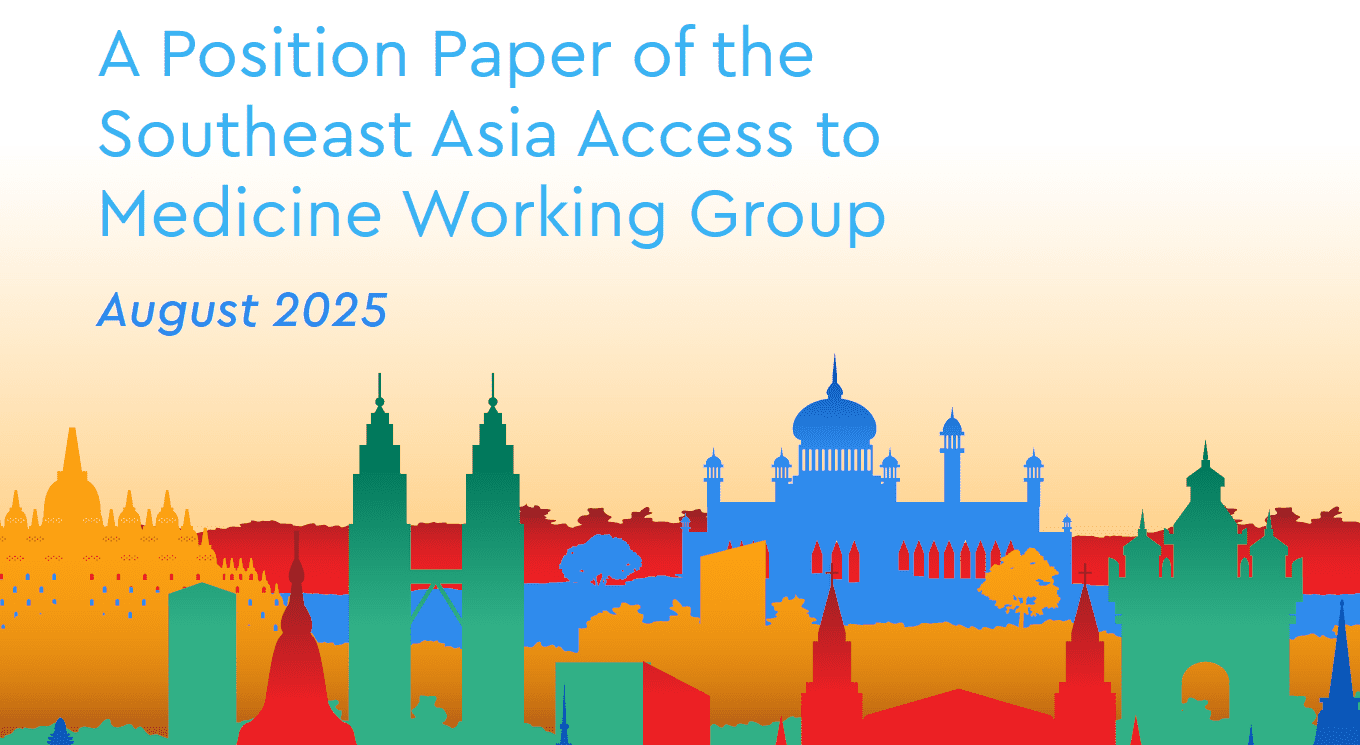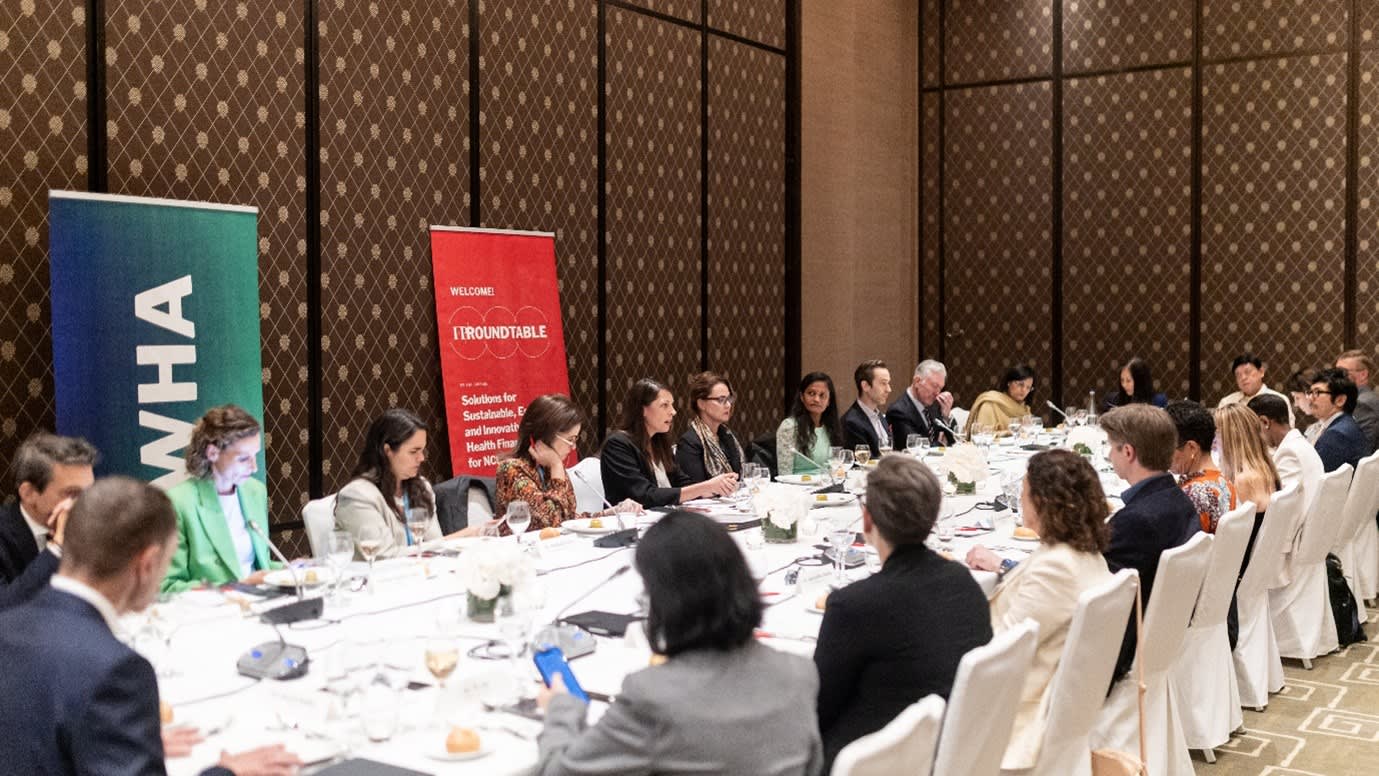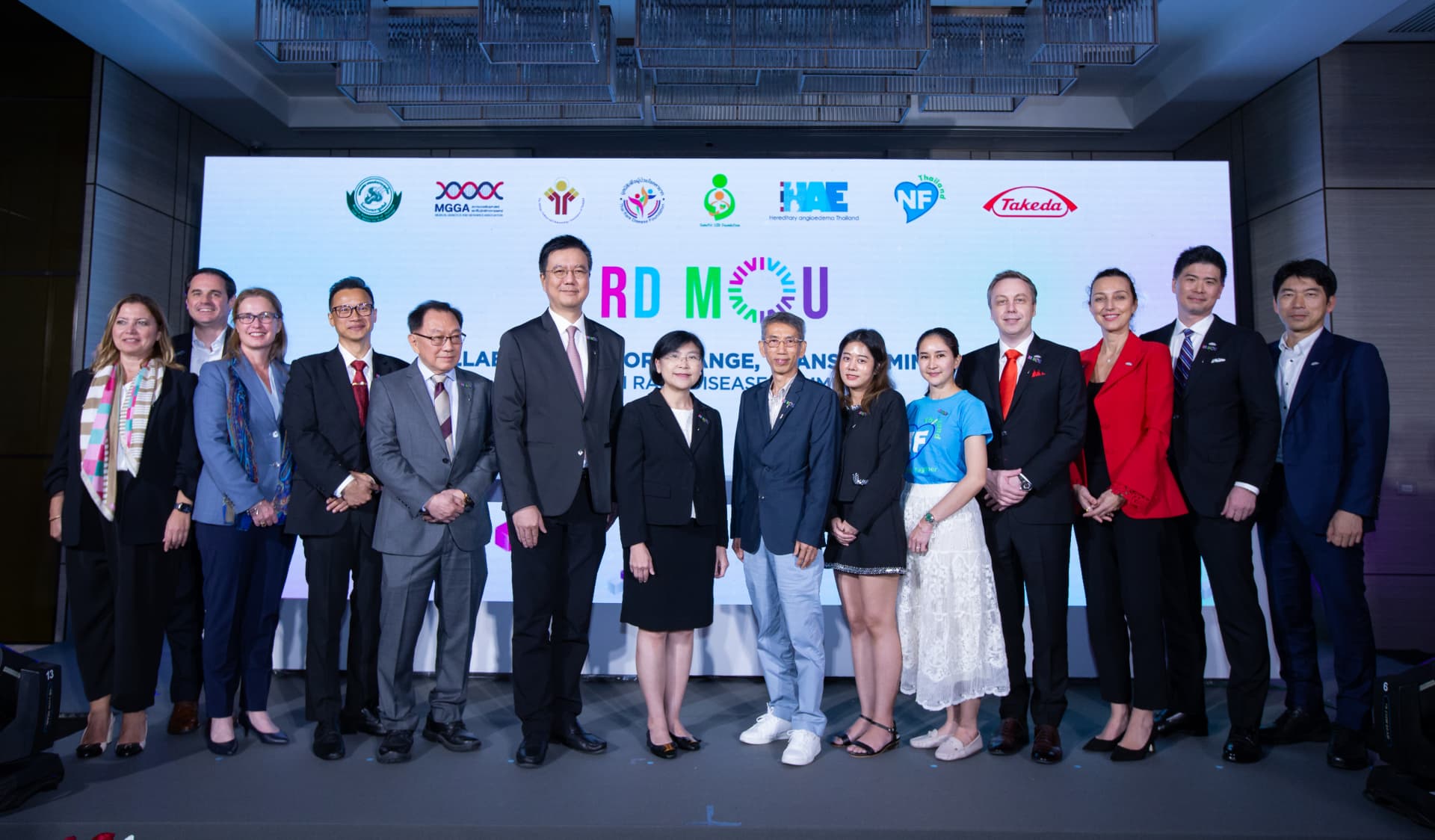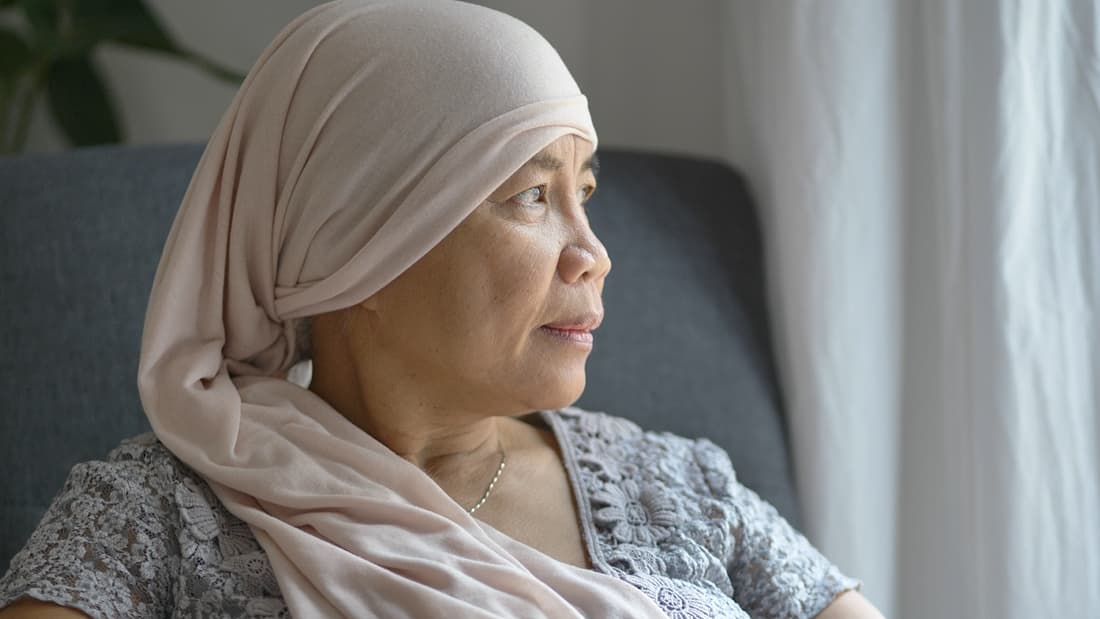Access to Medicines - Strengthening Healthcare Systems | Takeda Pharmaceuticals
Strengthening Healthcare Systems
Sustainable and equitable access to medicines and vaccines can only be achieved through a deep understanding of both the patient needs and the ability of the local healthcare system to deliver it.
We take a holistic approach to strengthening healthcare systems, providing local solutions, built on global insights.
Central to this approach is collaboration with partners and relevant government authorities to ensure initiatives are sustainable and deliver lasting impact at scale.
Discover more about our Healthcare System Strengthening programs, which create societal value for local communities and transform the lives of patients by improving access to the healthcare they need.
Advancing Equitable Access to Medicines in Southeast Asia
Millions of people across Southeast Asia and India continue to face urgent health care challenges. Critical barriers to affordable, high-quality health care - fragmented regulatory systems, underfunded health infrastructure and unequal investment - are compounded by rising non-communicable and infectious disease, demographic shifts and climate pressures.1
Yet, across the region, there are powerful examples of progress. In Thailand, a participatory governance model known as the National Health Assembly has helped embed community voices in policymaking, strengthening universal health coverage.2 In Indonesia, local kaders - community health volunteers - have supported services from immunisations to nutrition, helping to raise child vaccination rates to 87% and contributing to longer life expectancy and lower maternal and child mortality.3 And in the Philippines, a drone delivery programme saw vaccines reach some of the country’s most remote communities, proving that locally led innovation and cross-sector partnership can overcome even the toughest barriers to access.4
Advancing Equitable Access to Medicines in Southeast Asia, a new position paper sponsored by Takeda and co-authored by SingHealth Duke-NUS Global Health Institute, AVPN, ACCESS Health International and Takeda, looks at both the challenge and opportunity in detail, and offers a practical road map for improving access to medicines across the region.
The paper is a direct outcome of discussions at the inaugural Southeast Asia Access to Medicine Summit in Bangkok in February 2025, sponsored by Takeda and hosted by SingHealth Duke-NUS Global Health Institute, AVPN, ACCESS Health International and Takeda, and the World Health Summit Regional Meeting in New Delhi in April, 2025, where Takeda participated as a member of the SEA working group. These meetings brought together a diverse group of policymakers, industry leaders, academics, patient advocates and healthcare professionals to share experiences, identify barriers and spotlight practical, sustainable approaches.
Grounded in regional strengths and shared experiences, the paper explores transformative strategies to support the development of inclusive and sustainable healthcare systems, including:
- Embedding community voices in policymaking;
- Harmonising regulatory systems across the region;
- Scaling digital and data infrastructure;
- Reforming financing to deliver equity and outcomes; and
- Strengthening public–private partnerships to drive innovation and accountability.
The region has already shown what is possible. Now is the time for governments, civil society and the private sector to act together, turning shared ambition into lasting change and making equitable access to medicines the standard for every patient.
Read the full report here.
References
- Executive Summary, p. 3, and Forward, p. 6 of Advancing Equitable Access to Medicines in Southeast Asia. Southeast Asia Access to Medicine Working Group, co-authored by SingHealth Duke-NUS Global Health Institute, AVPN, ACCESS Health International, and Takeda. Sponsored by Takeda Pharmaceutical International, August 2025.
- Presented at the Southeast Asia Access to Medicine Summit; Bangkok, Thailand; 18 February 2025. – p. 14 of Advancing Equitable Access to Medicines in Southeast Asia, Southeast Asia Access to Medicine Working Group, 2025.
- CHW Central. Indonesia’s Community Health Workers (Kaders). Available at: https://chwcentral.org/indonesias-community-health-workers-kaders/
[cited March 2025] - p. 30 of Advancing Equitable Access to Medicines in Southeast Asia, Southeast Asia Access to Medicine Working Group, 2025. - WeRobotics. Locally-Led Medical Drone Delivery in the Philippines. Available at: https://www.youtube.com/watch?v=5SbiP7bSUw4 [cited March 2025] p. 19 of Advancing Equitable Access to Medicines in Southeast Asia, Southeast Asia Access to Medicine Working Group, 2025.

Innovating Health Financing for Non-Communicable Diseases (NCDs): A Global Dialogue
In May 2025 on the sidelines of 78th World Health Assembly in Geneva, Takeda partnered with Foreign Policy Analytics by providing financial support to host a high-level roundtable focused on advancing sustainable and equitable health financing for NCDs.
This summary report captures the rich insights and actionable recommendations from leaders across government, industry, and civil society. Key take-aways included the urgent need to integrate NCDs into universal health coverage frameworks, the importance of multi-sectoral collaboration to unlock innovative financing mechanisms, and the value of community-led approaches that prioritize equity and resilience. The event reinforced Takeda’s dedication to supporting inclusive partnerships and long-term solutions that strengthen health systems and improve outcomes for underserved populations.
Learn more in the synthesis report
Rx for Change: Solutions for Sustainable, Equitable, and Innovative Health Financing for NCDs
September 2025 C-ANPROM/INT/NON/0096

Transforming Rare Disease Access across Southeast Asia1
Despite what the term implies, rare diseases are more common than many people realize. In fact, more than 45 million people across Southeast Asia – or about 9 percent of the region’s population – are affected by a rare disease.2
These tens of millions of patients encounter critical barriers when accessing the treatment they need, ranging from limited awareness to frequent misdiagnoses. Given the widely dispersed but relatively small patient base for each rare disease, there are disproportionately few treatments and medicines available across the region.3
To help address this challenge, in March 2024, Takeda convened 600 experts, policymakers, and patient advocates in Bangkok for the 2nd Southeast Asia Rare Disease Summit. The insights from the summit, initiated, organised and funded by Takeda, culminated in a white paper that summarizes the key barriers faced by patients with rare diseases in the region. To learn more, please see the full white paper here.
During the discussions, advocacy groups from across the region shared case studies, such as the introduction of newborn screening for rare diseases in Singapore, the optimization of Thailand’s referral system to improve care access, the promotion of rare disease policies in Taiwan, and the establishment of patient assistance networks in Malaysia. This exercise was intended to illustrate the complexity of barriers to access, showcasing success factors that could support implementation efforts elsewhere.
Following the summit and based on the recommendations from the white paper, Takeda renewed a strategic Memorandum of Understanding (MOU) with the public health authority and patient advocacy groups in November 2024. This MOU will focus on four key priorities: 1) raising awareness of rare diseases; 2) improving diagnostic capabilities; 3) supporting training of medical professionals; and 4) amplifying the voices of patients to encourage a supportive policy framework.
While this MOU is an important step, it signals just the beginning of a sustained effort needed by all stakeholders to improve rare disease care in Thailand – and indeed across Southeast Asia.
- “The Southeast Asia Rare Diseases Summit provides us with a much-needed platform to discuss best practices around collaborations between government, non-government organisations and the business sector to discuss rare disease issues and initiate country-specific national rare disease action plans. We need to take tangible actions together to ensure that no patient is overlooked.”
Professor Thanyachai Sura, M.D., President of Asia-Pacific Society of Human Genetics (APSHG) and President of Medical Genetics and Genomics Association (MGGA)
- This article should not be used for diagnosing or treating a health condition or disease. It is not intended to substitute for consultation with a healthcare provider.
- https://ojrd.biomedcentral.com/articles/10.1186/s13023-016-0460-9
- https://pubmed.ncbi.nlm.nih.gov/27484654/

Developing holistic solutions to enhance healthcare systems in the Philippines
Drawing upon the insights and lessons gathered from the Access to Medicines (AtM) Summit 2024 in Manila, we developed a white paper to summarize the current challenges facing patients, and to outline locally led initiatives that are integrated with the Philippines’ healthcare systems to accelerate sustainable, equitable access for those who need it.
Charting the Course to Sustainable and Equitable Access to Medicines in the Philippines
In 2024 Takeda hosted the 2024 Access to Medicines Summit in Manila. The Summit convened more than 200 stakeholders, including government representatives, healthcare experts, NGOs, and patient advisory groups, with the common purpose of exploring ways to accelerate sustainable and equitable access to innovative medicines in the Philippines.
As an output of the Summit participants developed a suggested roadmap that summarizes the key healthcare challenges Filipino patients face, identifies ongoing initiatives to improve access, and outlines the recommended next steps which have the potential to unlock barriers to sustainable, equitable access.
The highlights of this roadmap – the first step towards implementation – are outlined below.
Barriers to Access
There are a number of barriers that prevent equitable access to medicines across the patient journey. The country’s island geography complicates the development of a comprehensive healthcare infrastructure, particularly in remote regions.1 Misconceptions about diseases and insufficient patient education2, coupled with supply chain challenges, lead to inconsistent medicine distribution and inventory issues.3 Additionally, the high cost of healthcare remains a prohibitive barrier for many,4 despite rising incomes.
Ongoing Initiatives to Improve Access
The Philippines' Universal Health Coverage law represents a significant step towards equitable healthcare for all Filipinos. With a comprehensive 8-Point Action Agenda,5 the nation is focusing on enhancing health outcomes and access to care. Initiatives like the establishment of new primary care centres, improvement of mental healthcare, and strengthening of crisis resilience highlight the country's commitment to health sector reform and gathering momentum in delivering on government promises.
Roadmap to Addressing Barriers to Access
The roadmap synthesizes key ideas proposed by participants of the summit, aimed at guiding action to implement locally led, integrated, and sustainable access solutions. Proposed initiatives include the adoption of interoperable electronic medical record systems to streamline patient information, the reinforcement of health sector employment rights, and the establishment of stringent criteria for specialty and cancer centres.
References
- Challenges in public health facilities and services: evidence from a geographically isolated and disadvantaged area in the Philippines
- Prevalence of Limited Health Literacy in the Philippines: First National Survey
- Inventory Management of Drugs and Medicines of Four Devolved Hospitals of the Province of Bohol for CY 2022
- Health expenses remain a big burden for Pinoys despite UHC
- Philippine Development Plan 2023-2028: Economic Transformation for a Prosperous, Inclusive, and Resilient Society

Improving Health Systems and Access for People Impacted by NCDs (Non-Communicable Diseases) in Kenya
In partnership with the Kenyan government and local healthcare leaders, we piloted a three-year initiative, the Blueprint for Innovative Healthcare Access, to address and improve local standards of care and access barriers for people living with NCDs in Meru County, Kenya.
Delivering a Comprehensive End-to-End Access Approach to Strengthen Healthcare Ecosystems in Rwanda
Building on the success of our pilot Blueprint initiative in Kenya, we expanded the approach to other countries across sub-Saharan Africa, including Rwanda, allowing us to further broaden access and scale our impact across the entire patient journey.
